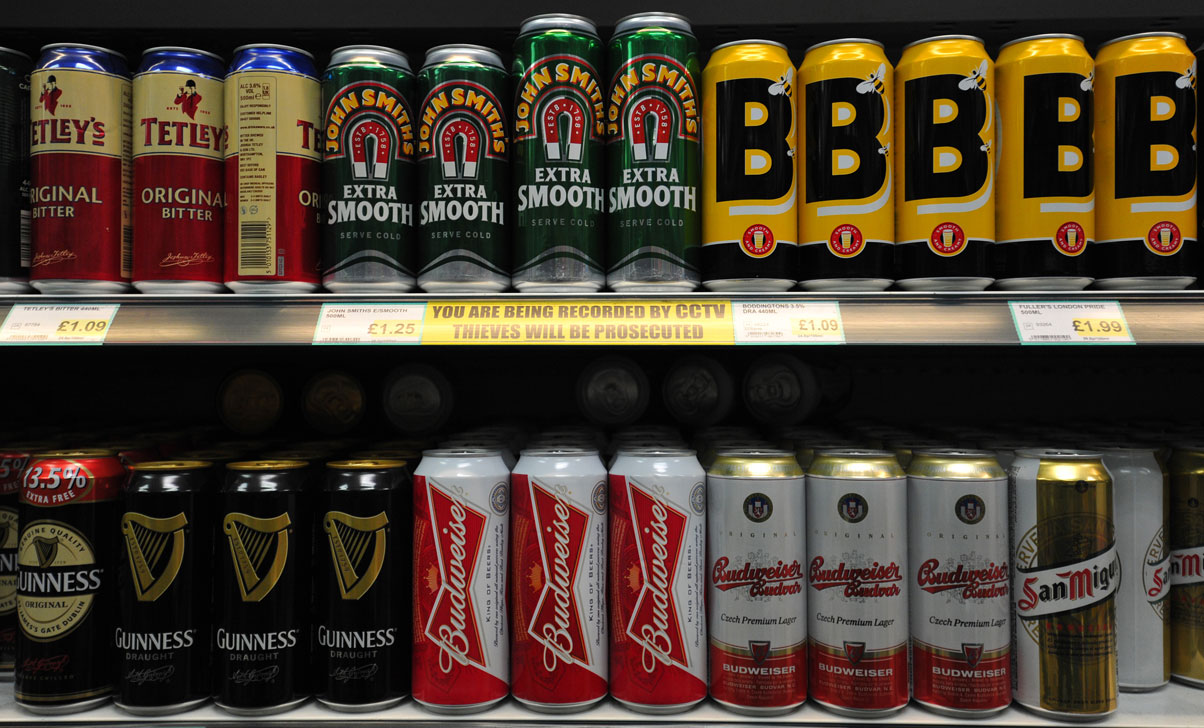Cameron ditches minimum alcohol prices amid lobbying claims
As the government shelves plans for a minimum unit price for alcohol amid claims of lobbying, a Tory MP says that she fears “public health has been downgraded.”

A consultation document last year recommended a base price of 45p per unit in England and Wales. However in a U-turn today, the government announced it was scrapping the proposal.
Prime Minister David Cameron said: “We are introducing today what is effectively a minimum price because we are saying it’s going to be illegal to sell alcohol below the rate of duty plus VAT.
“Supermarkets or shops deeply discounting alcohol will be made illegal. That, I think, will be a positive step forward.”
He added that there were arguments with “a lot of merit” in favour of a minimum price but there were also problems.
“There’s a degree of legal uncertainty – it’s been introduced in Scotland but it’s still under legal challenge – and there’s also question marks about the evidence behind it and how well it can work.
“So, when we have more evidence about how it can work and when we’ve got more certainty about the legal issues I think it’s an idea that has merit, that I’ll be happy to consider again.”
In the end the buck stops absolutely here. These are both decisions that I have made – David Cameron
The announcement comes on the same day that Cameron is under-fire over lobbying fears in the decision to shelve plans for plain packaging for cigarettes.
Critics have also questioned the role party election strategist Lynton Crosby has had in the u-turn.
However Mr Cameron stressed that the decision to shelve the plans had been made “by me as Prime Minister.”
“In the end the buck stops absolutely here,” he said. “These are both decisions that I have made, I think they are the right ones because we need the evidence base, we need the legal certainty and then we can move ahead.
“But until then it makes sense not to move ahead.”
Downgraded
However Conservative MP Sarah Wollaston, who is also a GP, said she was “very disappointed” by the decisions to drop minimum unit pricing for alcohol and plain packaging for tobacco.
Dr Wollaston told BBC News Channel: “I do fear that public health has been downgraded by removing both of these very important measures from the agenda. I think actually what the public are really worried about is the parasitical influence that we get from hidden lobbying. That’s what I’d like to see addressed.”
Asked if she saw the public health U-turns as evidence of Mr Crosby’s influence over policy, Dr Wollaston said: “I don’t want to personalise this, but I do think that the influence of lobbying throughout this has been very pervasive and I think it’s very disturbing and it’s absolutely why we should have complete transparency.
“I would like, for example, to know who else is paying for Mr Crosby’s services… The public have a right to know, I want to know, who else is paying for people’s services when they have such an influential position with senior politicians.”
Not enough evidence
In a statement to MPs, Home Office Minister Jeremy Browne said the ban on selling alcohol for less than the price of duty and VAT in England and Wales would mean a can of lager would in future cost at least 40p.
He said: “There has been much speculation about the Government’s plans on minimum unit pricing. This will remain a policy under consideration, but will not be taken forward at this time.
“We do not yet have enough concrete evidence that its introduction would be effective in reducing harms associated with problem drinking … without penalising people who drink responsibly.”
The Minister added: “We will tackle the most egregious examples of cheap alcohol by banning sales of alcohol below the value of alcohol duty and VAT.
“This will come into effect in England and Wales no later than spring 2014 and will stop the worst instances of deep discounting which result in alcohol being sold cheaply and harmfully.
“It will no longer be legal to sell a can of ordinary strength lager for less than about 40p.”
The decision not to ban deals such as “buy one get one free” was taken because “there remains a lack of convincing evidence that it would have a significant effect in reducing consumption”.
Mr Browne said: “It would not be a reasonable course of action for us to introduce a ban, especially at a time when responsible families are trying hard to balance their household budgets.”
-
Latest news
-
Laughing Boy: New play tells the tragic tale of Connor Sparrowhawk5m

-
Sewage warning system allows some of worst test results to be left off rating system, analysis shows3m

-
Post Office inquiry: Former CEO didn’t like word “bugs” to refer to faulty IT system4m

-
Israeli soldier speaks out on war in Gaza12m

-
PM’s defence spending boost should be ‘celebrated’, says former Armed Forces Minister4m

-




